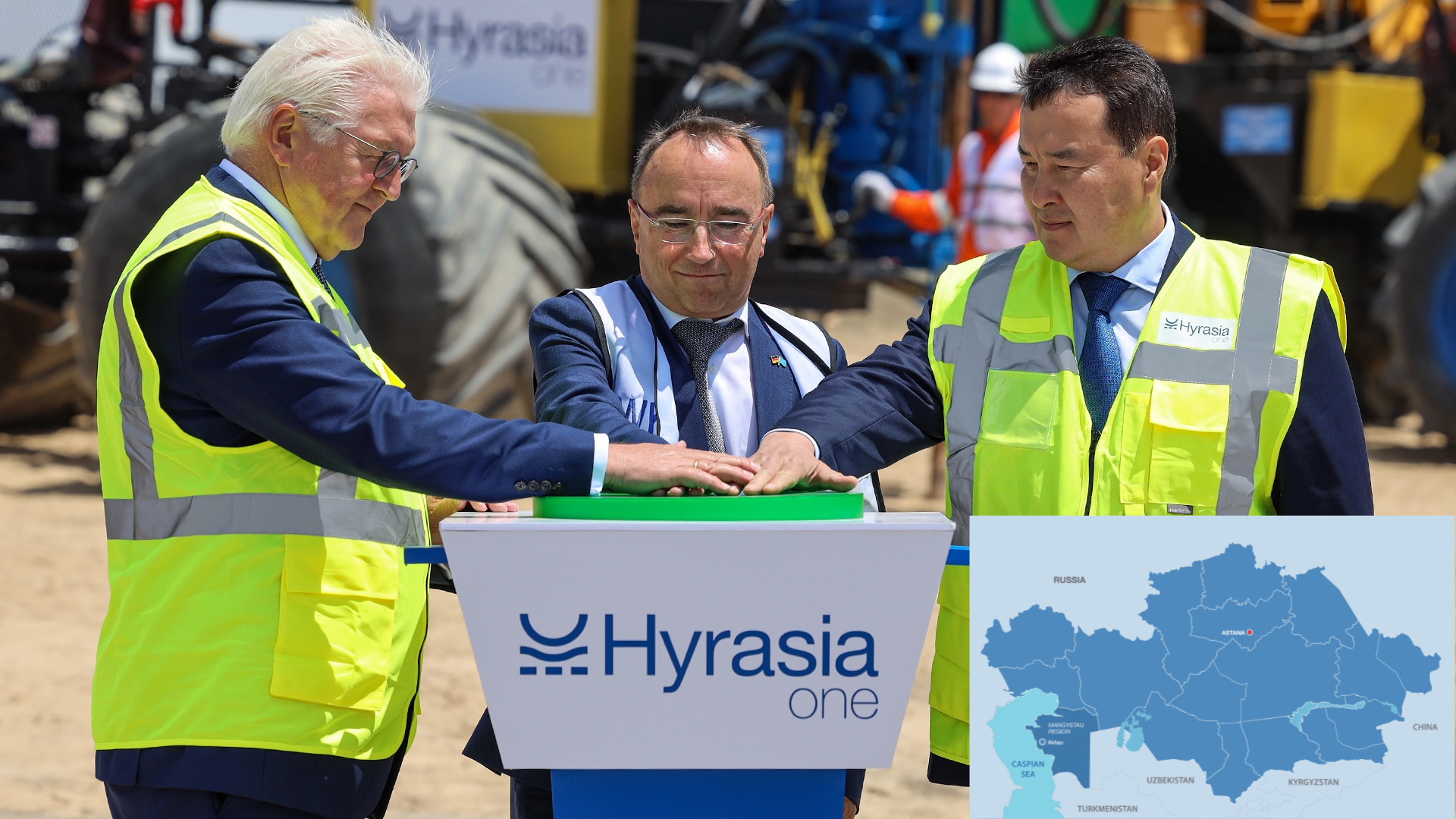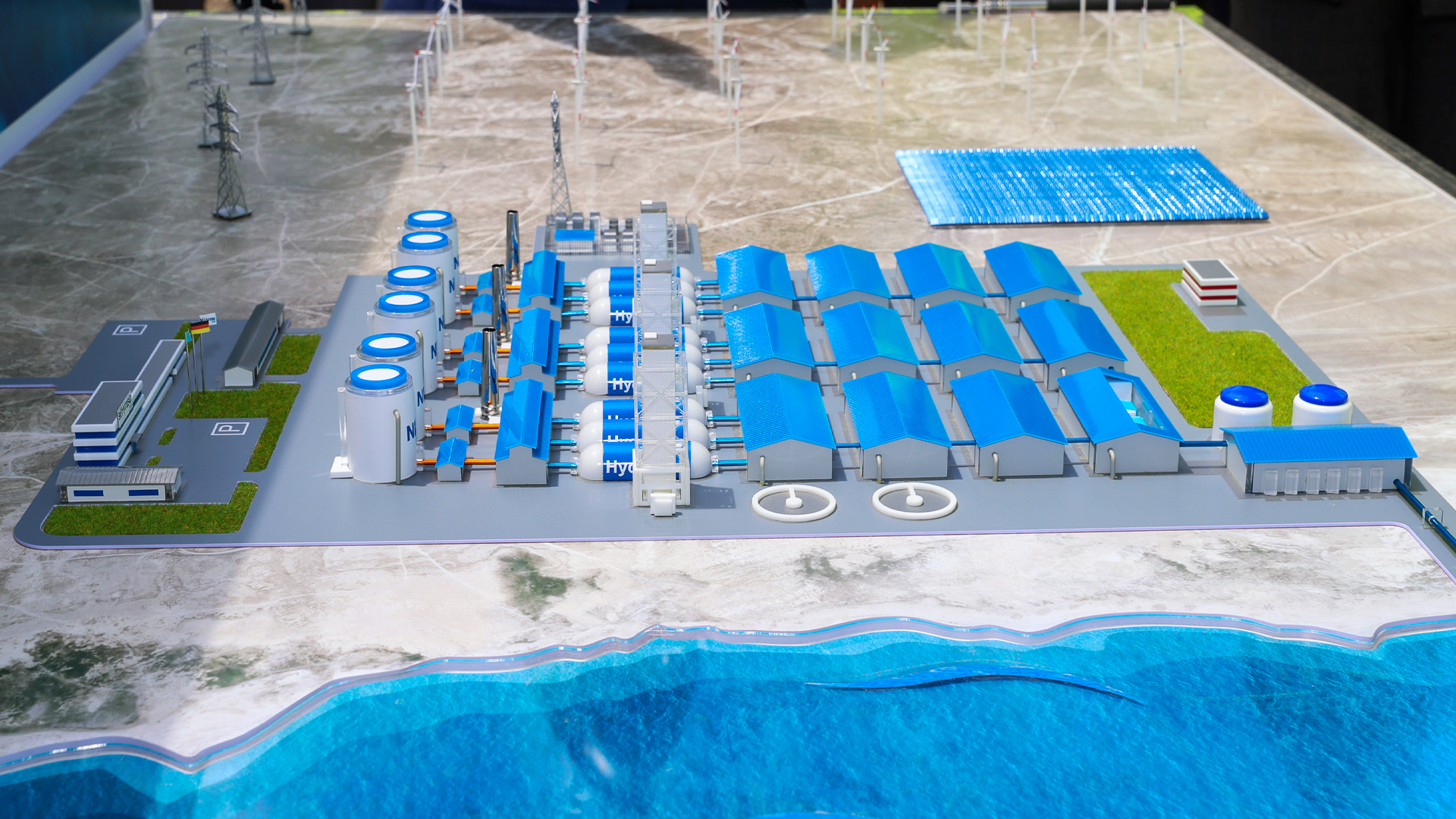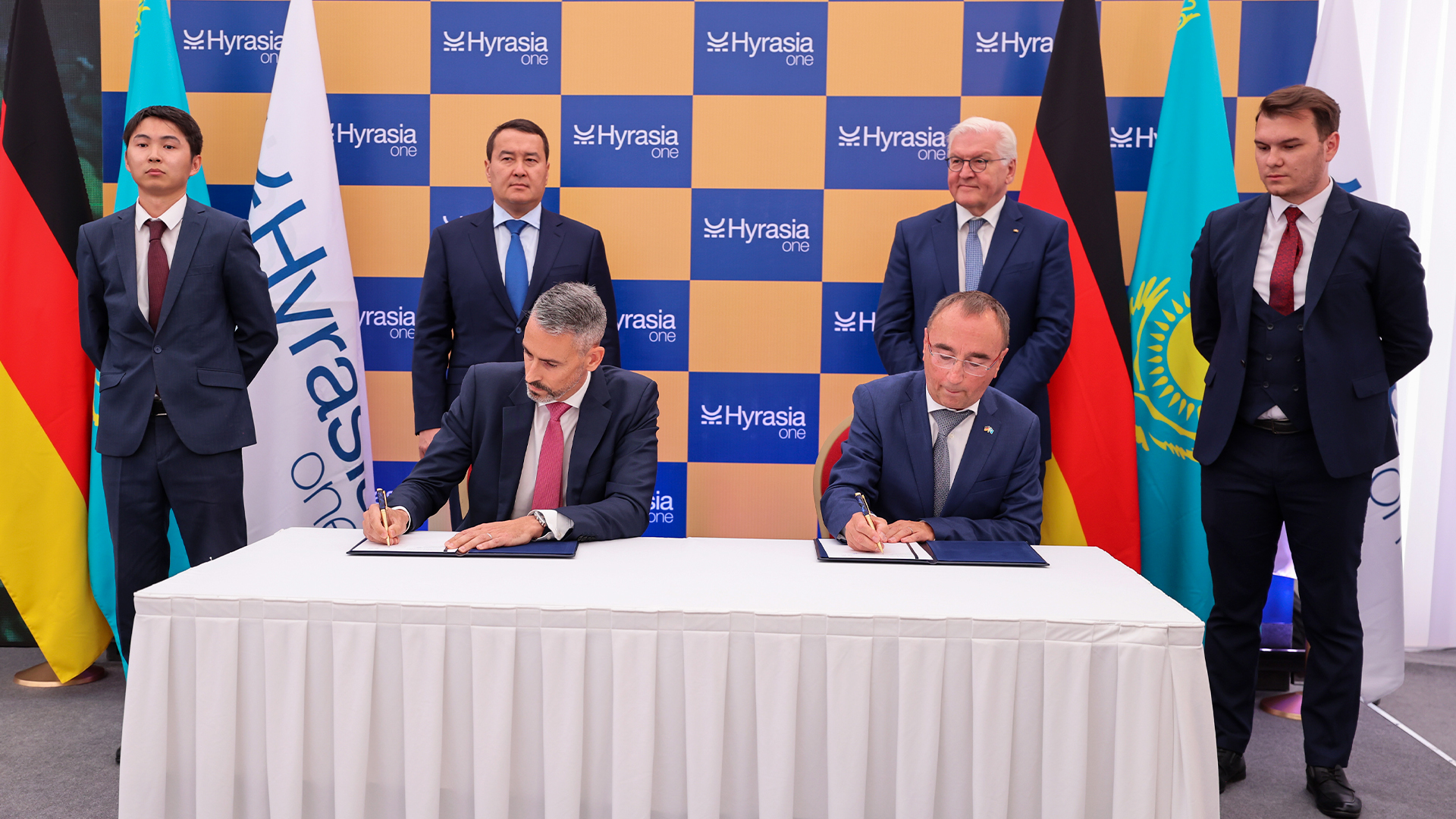ASTANA – German Federal President Frank-Walter Steinmeier and Kazakh Prime Minister Alikhan Smailov launched test drilling at a major green hydrogen production plant in the Karakiya district of the Mangystau Region on June 21, the Prime Minister’s press service announced.

Steinmeier and Smailov launch test drilling in the Mangystau Region on June 21. Photo credit: Prime Minister’s press service. Click to see the map in full size. The map is designed by The Astana Times.
The project is being implemented by the German-Swedish company Svevind as part of the Investment Agreement inked during the visit of European Council President Charles Michel to Kazakhstan in October last year. The company plans to construct solar and wind power plants with a combined capacity of 40 gigawatt, producing up to two million tons of green hydrogen that can be converted to 11 million tons of green ammonia annually from 2032.
The project will enable Kazakhstan to supply large volumes of hydrogen or ammonia to European and Asian markets and speed up the country’s green transition.
The start of the drilling represents a new phase in the project’s development, Preliminary Front-End Engineering and Design (pre-FEED), enabling the collection of critical data to accurately analyze subsurface rocks and assess next steps. The pre-FEED stage involves making technological choices, such as determining the appropriate electrolyzers to utilize for converting renewable electricity into green hydrogen through the process of water splitting.

The model of a green hydrogen plant soon to be built in partnership with the German company Svevind. Photo credit: Prime Minister’s press service.
According to Wolfgang Kropp, Svevind CEO, the world is yet to see a single project of this magnitude implemented to produce green hydrogen.
“I was honored to launch this important project phase side by side with President Steinmeier and Prime Minister Smailov,” said Wolfgang Kropp. “Their presence and support underlines the importance of green hydrogen production at scale. What we are creating here is real pioneering work: not a single green hydrogen project of this size has ever been realized. We cannot just procure the equipment and start construction. We are developing something unprecedented and new that needs precise and careful planning and assessment.”
As part of President Steinmeier’s visit to the Mangystau Region, a preliminary design and survey contract was signed between Svevind and Genesis, a consulting company in the energy industry and a subsidiary of Technip Energies, a French engineering and technology company. These studies will aid in making critical technical decisions and extensive planning for the plant’s construction.

Signing of a preliminary design and survey contract with Genesis, a French engineering and technology company Technip Energies subsidiary. Photo credit: Prime Minister’s press service.
“We are pleased to draw on our advisory excellence through our affiliate Genesis to support Svevind Energy Group in this ambitious green hydrogen and derivatives project. While strengthening our long-lasting presence in Kazakhstan, this project illustrates the need to bridge the gap between green electrons to molecules to build a sustainable future,” commented Charles Cessot, Senior Vice President of Consulting and Products at Technip Energies.
As the project enters a new phase, it progresses according to the plan. Initial environmental impact assessments are currently underway, and there are several important milestones approaching. The initiation of the Environmental Social Impact Assessment, the Final Investment Decision are scheduled for 2026, commencement of construction in 2027, the start of production and deliveries in 2030, and the target for full capacity utilization from 2032 onwards.
Elsewhere, during Steinmeier’s state visit to Kazakhstan, the countries signed 23 commercial contracts and memoranda worth over $1.7 billion, including on the construction of a plant for the production of gypsum board sheets and dry building mixtures with Knauf, the localization of medium-voltage switchgear production for the country’s power industry under Siemens, and on joint geological exploration for solid minerals and their processing. One of the more significant contracts envisages the entry into the Kazakh market of HMS Bergbau that will work on developing lithium fields.
